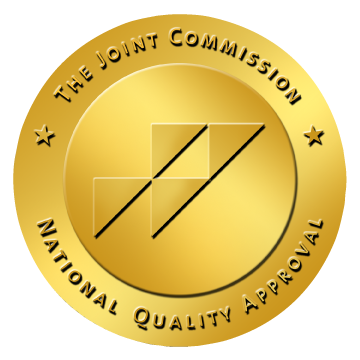Depression is a mental health disorder characterized by feelings of sadness and hopelessness that affect a person’s ability to function normally. It’s a common disorder, with nearly 30% of U.S. adults having been diagnosed with depression at some point in their lives.
No cure for depression exists, but it can be treated and managed effectively, allowing sufferers to live normal and fulfilling lives.
Feeling sad in certain situations, such as the death of a loved one or the loss of a relationship, is part of the human condition. Depression, on the other hand, causes feelings of sadness and hopelessness without a specific situational reason. Depression may come in episodes lasting for two weeks or more, or it may be constant.
Sometimes depression is caused by abnormalities in how the brain produces and processes dopamine and serotonin, both of which affect mood. Genetic factors can also play a role.
Other factors that can lead to depression include isolation, low self-esteem, or childhood trauma.
Everyone experiences depression differently, but common symptoms include:
Depression can also manifest itself physically, causing gastrointestinal issues, headaches, and backaches.
Depression requires a professional diagnosis. At NEMG, we conduct full psychiatric evaluations before treating depression or any mental health disorder so that treatment can be tailored to the patient’s specific needs.
Depression comes in several forms and is treated based on the type of depression that is diagnosed.
Major Depressive Disorder (MDD)
MDD is diagnosed when depression symptoms are severe and overwhelming and last for two weeks or more. People with MDD often have difficulty functioning normally and participating in life in general.
Persistent Depressive Disorder (PDD)
Symptoms of PDD are less severe than those of major depression, but they tend to be continuous rather than coming in episodes. People with PDD generally can function normally.
Bipolar Disorder
People with bipolar disorder go through periods of depression, but they also have periods of extreme energy that often lead to risky or self-destructive behavior. Bipolar disorder can be very disruptive to normal functioning.
Seasonal Affective Disorder (SAD)
People with SAD experience depression in the fall and winter when the periods of daylight are shorter. The lack of light affects the person’s natural rhythms and the way their brain processes melatonin and serotonin.
Perinatal Depression
Women may experience perinatal depression, also known as postpartum depression, both during and after pregnancy. They experience depressive episodes that may be severe.
Depression is a very treatable disorder. Treatment often includes both therapy and medications.
Several types of therapy have shown success in treating depression.
Cognitive Behavioral Therapy (CBT)
CBT involves learning how to control negative thoughts by recognizing them and reasoning through them to come to a more positive conclusion. CBT also involves learning to control emotions, cope with challenges, and solve problems.
Interpersonal Therapy (IPT)
IPT allows the patient to express emotions or discuss problems that are contributing to depression symptoms. They learn strategies to regulate their emotions and to handle stressful situations.
Group Therapy
Group therapy helps with feelings of isolation by fostering interaction with others who also suffer from depression. It gives patients a sense of belonging and of being supported by their peers.
Family Therapy
In some cases, family therapy can be helpful. Family members learn how to support each other and to communicate more effectively.
Antidepressants can be extremely effective in relieving depression symptoms, but everyone reacts differently to different medications. Sometimes, medications are adjusted in the beginning to find out what’s most effective for the individual.
Several medications are commonly used.
Selective serotonin reuptake inhibitors (SSRIs)
SSRIs include medications like sertraline (Zoloft) and citalopram. They are very effective and have few side effects, so these options are usually tried first.
Serotonin and norepinephrine reuptake inhibitors (SNRIs)
SNRIs are often tried when SSRIs are not effective. These include medications like duloxetine.
Tricyclic antidepressants (TCAs)
TCAs have more side effects, so they are only prescribed when SSRIs and SNRIs don’t work. A common TCA is amitriptyline.
Living a healthy lifestyle and making some lifestyle changes can also be effective in managing depression symptoms. Eating a healthy diet, getting regular exercise, and having a regular sleep routine all have proven to be very effective in managing depression. Some people also find meditation, yoga, and breathing exercises helpful.
It’s also important to have a support system to turn to in place, whether it’s family members, friends, or support groups. Talking to others and having regular interactions with people is quite effective in managing depression symptoms and keeping feelings of isolation at bay.
While depression is not curable, it is extremely manageable for most people. If you think you might have depression, reaching out for help is the first step. Your healthcare provider can offer resources for diagnosis and treatment. It may take some time to get on the right track, but with help, you can be on your way to a better, more fulfilling life.
